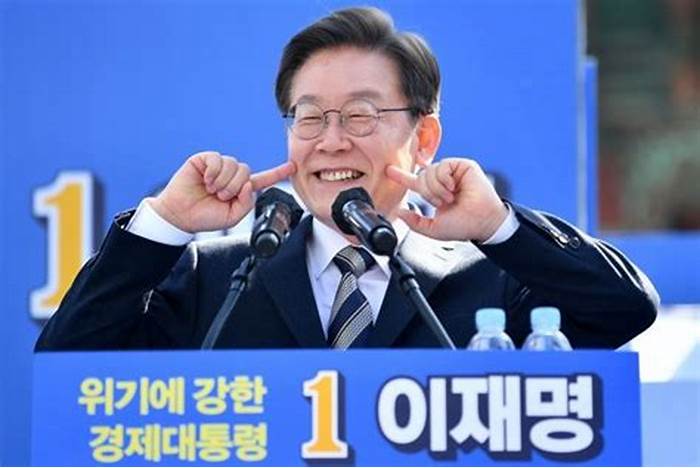On June 3, 2025, Lee Jae-myung of the Democratic Party of Korea was elected as the 21st President of South Korea. The AsiaN is publishing the hopes and expectations of Koreans for the new president and administration in both Korean and English editions. We welcome the interest, feedback, and constructive criticism of our readers.
The AsiaN Editorial Team

By Cho Yong-yeon,
Former Commissioner General at the Korean National Police Agency (Senior Superintendent General), and travel writer
SEOUL: Congratulations to President Lee Jae-myung on his election after a fiercely contested campaign.
Having assumed office immediately without the transitional status of president-elect, he now faces a mountain of national challenges that far outweigh any celebration. Having endured and overcome a level of political conflict akin to civil strife, he must be more acutely aware than anyone of the deep fog of uncertainty and division clouding the minds of the Korean people.
He must never forget that at least half the nation stood in opposition to him—a truth that should stay with him until the very last day of his presidency. Should the justification of “ending civil unrest” be used to unleash political purges, it would mean misbuttoning the presidency from day one. His first steps as president must not further tear apart an already fractured public sentiment and regional landscape. Now is the time for “From Now, It’s Lee Jae-myung” to transform into a moment where the people say, “Lee Jae-myung truly is different,” and for him to begin healing the emotional wounds and divisions that the nation bears.
The harsh words exchanged during the campaign must now be put to rest. As the victor, this is the foremost virtue the president must embrace. Any legal punishment for rebellion or imposition of martial law should be left to the judiciary.
Advising further confrontation would be like pouring oil on fire—it only serves to turn the president’s path into one lined with thorns. Trying to cater only to his loyal base, the so-called “core supporters,” would be a grave mistake that has doomed many presidents before him.
He must prove wrong the conservative fears that his fervent young supporters, often referred to as “reformist daughters,” will become unruly. The skepticism among conservatives who say, “President Lee Jae-myung is dangerous,” must be answered with action that replaces fear with respect.
Without a transition team, the immediate burden of governance weighs heavily on President Lee, starting with the task of policy prioritization. Resentment toward the former administration must not result in the wholesale rejection of its national agendas or governing philosophy.
A president must respond to the demands of the era while grounding national policy in Korea’s enduring foundational values. The introduction of expansive welfare or basic income programs, which risk massive debt, should not be glamorized as minimal support for the marginalized. Policies must not be driven by animosity toward the wealthy or the false assumption that all corporations are exploitative. Doing so would only stifle growth and erode economic momentum.
In foreign affairs, a vague, transactional diplomacy based on pleasantries—what might be called a “thank-you-and-move-on” approach—will not suffice on the minefield that is the Korean Peninsula’s geopolitical reality. Reckless or simplistic diplomatic positioning would amount to a dangerous gamble with the nation’s fate.
Even in appointments, the new administration must break free from political factionalism and ideological bias. Bold, merit-based selections are needed to dispel the lingering doubts surrounding President Lee. Filling key judicial and administrative positions with those who simply submit to authority may offer short-term comfort, but that sweet taste will quickly turn the nation diabetic.
Reform may look admirable from the outside, but in reality, it is a painful process—akin to shedding one’s skin. It must be pursued with the utmost care so that even if blood is drawn, the process resembles a bloodless surgery, carried out with precision and public consensus.
While it is true that the prosecution has long wielded unchecked power, dismantling it entirely could lay the groundwork for another centralized force to emerge, perpetuating a vicious cycle of abuse and public suffering.
Now is the time for the oft-cited but too often ignored principle of checks and balances to be placed firmly at the heart of governance. The presidency, as a symbol of immense power, must be held to this standard to earn the trust and respect of the people.
The downfall of past presidents may not be unrelated to the unchecked power of the prosecution, especially when shaped by lifelong careers in public service. When President Lee spoke of the need for power to remain “cold,” we trust he meant reasoned leadership, not a chilling campaign of political retribution.
There is no time to waste in filling the political void and fixing the cracks in our struggling economy. Let us reiterate—at the end of the day, it is people who make all of this happen. President Lee must break away from the revolving door of recycled officials he once criticized and open his eyes wide to find capable individuals across the country. Many talented minds are sharpening their swords in the shadows, waiting to be called upon.
For the president is not the head of a political faction—he must be the servant and protector of the entire Korean people. We hope President Lee Jae-myung will succeed and prove that the heated summer election of 2025 was not in vain. For the future of the Republic of Korea.




